Sun Conure: Bird Species Profile
Updated on 05/27/24
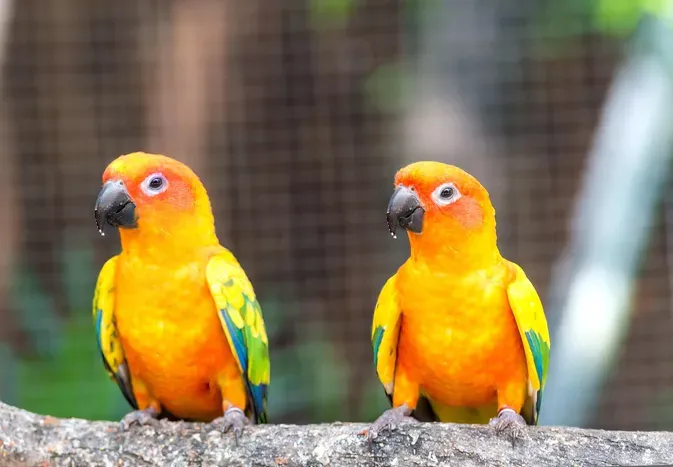
Unveiling the Enchanting World of the Sun Conure: A Comprehensive Bird Species Profile
Introduction
Among the kaleidoscope of avian species, the Sun Conure stands out as a captivating and vibrant feathered gem. Originating from the tropical rainforests of South America, this medium-sized parrot has captured the hearts of bird enthusiasts worldwide with its stunning plumage, playful nature, and impressive vocal abilities. In this comprehensive bird species profile, we delve deep into the enigmatic world of the Sun Conure, exploring its physical characteristics, behavior, diet, care requirements, and fascinating facts. Join us on this avian adventure as we unveil the secrets and wonders of this extraordinary feathered companion.
Physical Characteristics
The Sun Conure is a medium-sized parrot, with a body length ranging from 12 to 15 inches and a wingspan of up to 24 inches. Its weight typically falls between 120 and 150 grams. The defining feature of this species is its vibrant and distinctive plumage. The head and upper body are adorned with a brilliant shade of orange-yellow, resembling the golden rays of the sun, while the underside is a contrasting shade of green. The wings and tail feathers are adorned with intricate patterns of blue, yellow, and orange, creating a visually captivating tapestry. The Sun Conure's beak is strong and slightly hooked, enabling it to crack open nuts and seeds, while its feet are adapted for perching and climbing. Its eyes are typically dark brown or black, with a distinctive white ring around them.
Behavior and Temperament
The Sun Conure is renowned for its playful, energetic, and affectionate nature. These birds form strong bonds with their human companions and thrive on social interaction. They are highly intelligent and curious, with a playful demeanor that makes them a joy to observe. Sun Conures are natural mimics and can learn to imitate a variety of sounds, including human speech and other bird calls. Their vocalizations are typically loud and lively, but can also be melodious and soothing. They enjoy playing with toys, engaging in acrobatic feats, and exploring their surroundings. However, it's important to note that they can be quite demanding of attention and may exhibit jealous behavior if they feel neglected.
Examples of Sun Conure Behavior
* Playfulness: Sun Conures love to play and engage in playful activities, such as swinging, climbing, and chasing toys. They also enjoy interacting with their human companions and may participate in games like hide-and-seek.
* Mimicry: Sun Conures are skilled mimics and can learn to imitate a variety of sounds, including human speech, bird calls, and even mechanical noises. Their ability to mimic can be both entertaining and endearing.
* Affection: Sun Conures form strong bonds with their human companions and crave social interaction. They enjoy being petted, cuddled, and spending time with their loved ones.
Diet
The Sun Conure is primarily herbivorous, with a diet consisting mainly of fruits, vegetables, nuts, and seeds. In the wild, they feed on a wide variety of plant matter, including berries, fruits, nuts, seeds, and nectar. Captive Sun Conures should be provided with a balanced diet that mimics their natural food sources. A healthy diet for a Sun Conure includes:
* Fruits: Apples, bananas, berries, grapes, melons, oranges, and pears
* Vegetables: Broccoli, carrots, corn, green beans, leafy greens, and sweet potatoes
* Nuts and seeds: Almonds, cashews, peanuts, pecans, and walnuts
* Commercial pellets: High-quality commercial pellets formulated specifically for Sun Conures can provide a balanced source of essential nutrients.
Examples of Sun Conure Diet
* Fruit salad: A bowl of mixed fruits, such as berries, grapes, and bananas, can provide a nutritious and refreshing treat for your Sun Conure.
* Vegetable medley: A plate of chopped vegetables, such as carrots, broccoli, and sweet potatoes, can provide a healthy and crunchy snack.
* Nut mix: A small handful of mixed nuts, such as almonds, cashews, and walnuts, can provide a source of essential fatty acids and protein.
Care Requirements
Providing proper care for a Sun Conure is essential for its well-being and longevity. These birds require a spacious and well-equipped enclosure, a balanced diet, regular veterinary check-ups, and an abundance of mental and physical stimulation.
Enclosure
The ideal enclosure for a Sun Conure is a large cage or aviary that provides ample space for flying, climbing, and exploring. The enclosure should be made of sturdy materials, such as metal or acrylic, and should have a minimum size of 3 feet wide by 2 feet deep by 4 feet high for a single bird. The enclosure should be equipped with perches of varying diameters to accommodate the bird's different foot sizes and provide exercise. Toys, such as bells, ropes, and swings, should also be provided to keep the bird entertained and stimulated.
Examples of Sun Conure Care Requirements
* Spacious enclosure: A large cage or aviary that provides ample space for flying, climbing, and exploring is essential for a Sun Conure's well-being.
* Perches: Perches of varying diameters provide exercise and accommodate the bird's different foot sizes.
* Toys: Toys, such as bells, ropes, and swings, keep the bird entertained and stimulated.
Veterinary Care
Sun Conures should receive regular veterinary check-ups to ensure their health and well-being. During these check-ups, the veterinarian will examine the bird's overall health, check for any signs of illness or injury, and administer vaccinations as needed. Routine blood tests and fecal exams can help detect any underlying health issues early on.
Examples of Sun Conure Veterinary Care
* Annual check-ups: Annual veterinary check-ups are essential for monitoring the Sun Conure's overall health and detecting any potential issues early on.
* Vaccinations: Vaccinations can help protect the Sun Conure from common avian diseases, such as Psittacine beak and feather disease and avian influenza.
* Blood tests and fecal exams: Blood tests and fecal exams can help detect any underlying health issues, such as liver disease or parasites.
Mental and Physical Stimulation
Sun Conures are highly intelligent and active birds that require plenty of mental and physical stimulation to thrive. Providing a variety of toys and activities can help keep them engaged and prevent boredom. Interactive toys, such as puzzle feeders and foraging toys, can challenge their intelligence and provide mental enrichment. Regular supervised out-of-cage time allows them to explore their surroundings, socialize with their human companions, and burn off excess energy.
Examples of Sun Conure Mental and Physical Stimulation
* Puzzle feeders: Puzzle feeders require the Sun Conure to manipulate objects or solve puzzles to access food, providing mental stimulation.
* Foraging toys: Foraging toys mimic the Sun Conure's natural foraging behavior, encouraging them to search for food and stimulating their instincts.
* Supervised out-of-cage time: Supervised out-of-cage time allows the Sun Conure to socialize, explore, and burn off excess energy.
Fascinating Facts
The Sun Conure is a captivating species with a wealth of fascinating facts and trivia:
* Sun Conures are social birds: They live in flocks in the wild and form strong bonds with their companions.
* Sun Conures are excellent mimics: They can learn to imitate a variety of sounds, including human speech, bird calls, and even mechanical noises.
* Sun Conures have a long lifespan: With proper care, Sun Conures can live for up to 30 years or more.
* Sun Conures are native to South America: They are found in the tropical rainforests of Brazil, Bolivia, Paraguay, and Argentina.
* Sun Conures are sexually dimorphic: Male Sun Conures have a bolder and more vibrant plumage than females.
Conclusion
The Sun Conure is an extraordinary avian companion that captivates with its vibrant plumage, playful nature, and affectionate disposition. Their intelligence, mimicry abilities, and energetic personalities make them a joy to own and care for. By providing proper care, including a spacious enclosure, a balanced diet, regular veterinary check-ups, and an abundance of mental and physical stimulation, you can ensure your Sun Conure thrives and brings immeasurable joy to your life. As you embark on this feathered adventure, remember to marvel at the wonders of this enchanting species and cherish the special bond you will share with your Sun Conure.
Explore More Pets

Small Bird Breeds
Gloster Canary: Bird Species Profile

Small Bird Breeds
Java Finch: Bird Species Profile

Small Bird Breeds
Zebra Finch (Chestnut-Eared Finch): Bird Species Profile
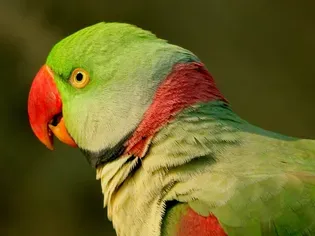
Small Bird Breeds
Alexandrine Parakeet: Species Characteristics & Care
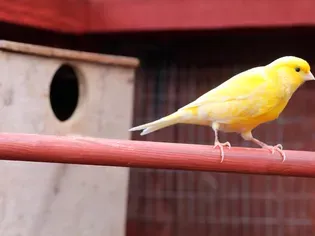
Small Bird Breeds
Canary: Bird Species Profile
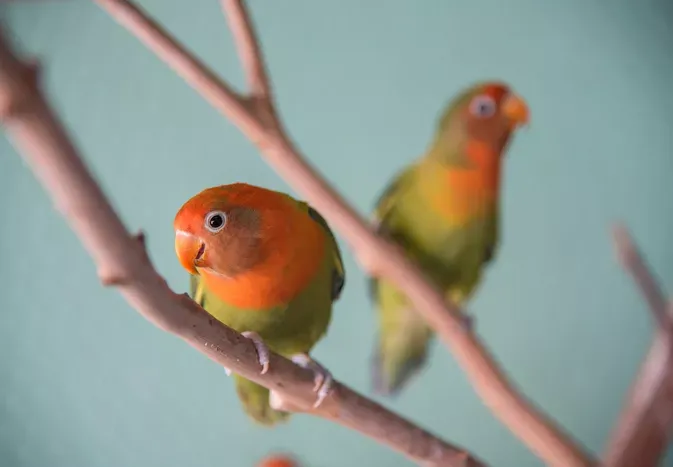
Small Bird Breeds
Lovebird (Pocket Parrot) Species Profile
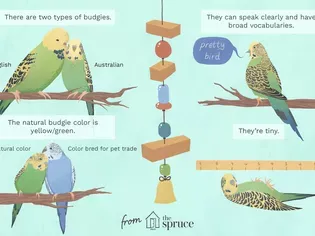
Small Bird Breeds
A Guide to Pet Budgie Birds
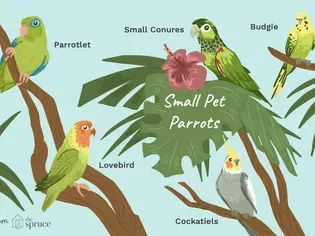
Small Bird Breeds
Types of Small Parrots
